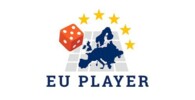EU PLAYER
European participation through game-based learning
EU PLAYER aims to expand knowledge about the EU and foster a sense of belonging among young people aged 13 to 20. Through game-based learning methods and engaging educational activities at both local and international levels, this innovative project transforms young participants from "EU players" into "EU ambassadors."
The initiative is developing a cooperative board game that conveys European values in an accessible and appealing format. By transitioning from analog to digital platforms, the project ensures broad outreach and long-term sustainability of its approach to countering Euroscepticism among youth.
Project Objectives
- Develop a cooperative board game that promotes the EU and its values.
- Create a multilingual manual on game-based learning approaches and gamification techniques.
- Train at least 200 operators and teachers in gamification methods for EU education.
- Involve at least 10,000 young people aged 13-20 from six different countries.
- Improve young people's perception of and engagement with the EU.
- Digitalise the game and spread it on major online platforms.
- Enhance EU visibility among young people through social media.
Target Groups
- Young people aged 13-20: Particularly those who may feel disconnected from EU institutions.
- Educators and youth workers: Teachers and professionals working directly with young people.
- Schools and youth centres: Educational institutions looking to implement innovative learning methods about the EU.
Project coordinator: YES Forum (Germany)
Project partners: ÖJAB (Austria), Zefiro (Italy), Finglas Youth Resource (Ireland), Nevo Parudimos (Romania), IEKEP (Greece)
Project duration: Dezember 2024 – November 2027
Project number: 2024-1-DE04-KA220-YOU-000255691
Funded by the European Union. Views and opinions expressed are however those of the author(s) only and do not necessarily reflect those of the European Union or the European Education and Culture Executive Agency (EACEA). Neither the European Union nor EACEA can be held responsible for them.


